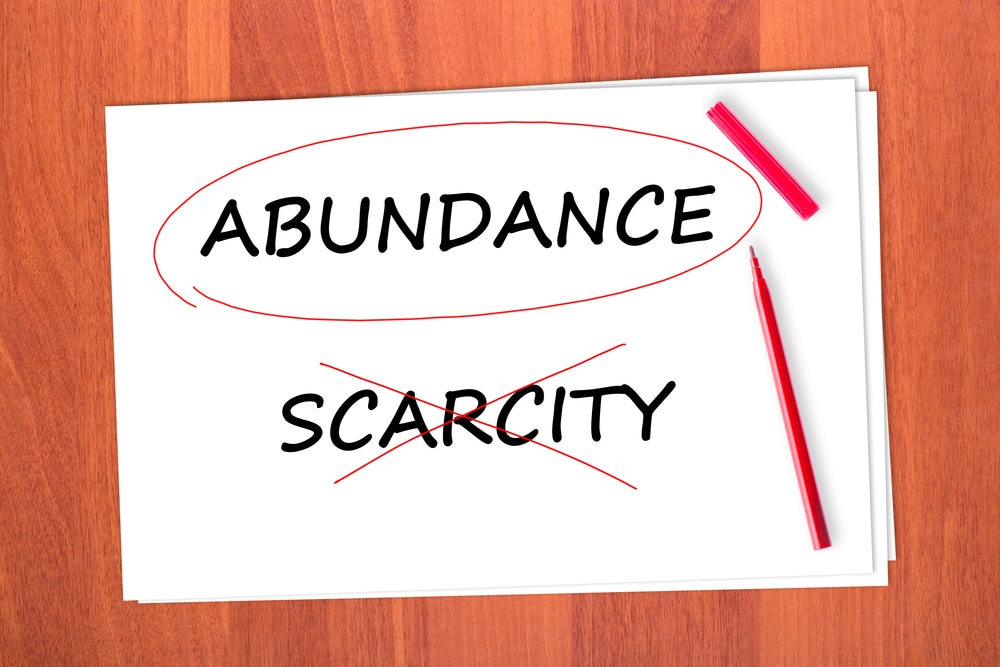|
Dear Dr. Jill,
I’m a 35-year-old female who has been making the online dating rounds for a while now. After many dates with many people who were not a good fit, I finally met someone amazing. On the first date, sparks flew. We talked about wanting more out of life, being tired of the whole “casual hookup scene,” wanting to settle down, get married, and eventually have a family. The physical sparks were there too. We couldn't keep our hands off of each other. I ended up staying the night and we ended up having sex. It was mind-blowing! Sex is something I vowed never to do on a first date. After one of the most amazing nights of my life, my date and I said goodbye and agreed to go out later in the week. He said he would call or text me to set something up. A week passed. Then two weeks. Then a third. I reached out to him a few times and, each time, he wrote back with brief, one-word answers. I asked about getting together. He responded vaguely and never got back to me. I was very hurt and confused by his behavior. Was this the same guy I met less than a month ago? Anyway. He reached out to me last night, asking to get together. I really like him and would very much like to see him again but I’m still stinging from the roller coaster of the last three weeks. I don't often meet men I'm so compatible with. I'm afraid of closing the door on something (or someone) with promise. Should I tell him that my feelings are hurt? Am I being too sensitive? Should I just accept his invitation and forget the whole thing ever happened? I don't want to scare him off by coming on too strong or by acting needy or clingy. Would appreciate your thoughts on what to do. Signed, Bothered and Bewildered Dear Bothered, Oh girl. What stands out most in your letter is not that you seem needy or clingy. It's the amount of fear and self-doubt you feel--only a few weeks after meeting this guy! I had two thoughts when I read your letter. The first pertains to the breaking of the vow you made to yourself about proceeding a bit more slowly when it comes to being intimate with someone. This is something most of us either have done or will do at some point in our lives. So no judgement here. That said, we need boundaries to feel safe and secure in any relationship, romantic and otherwise. When we behave out of accordance with our own boundaries, it is normal to feel insecure. In this case, I suspect your fear of seeming "needy" or "clingy" is a manifestation of this insecurity. The second thought I have is about your date's behavior. In short: it's really bad. I’m wondering if you feel confused because this man's behavior is the very definition of confusing: hot one minute; lukewarm—even cold—the next. Given the first date you described, anyone would be left wondering what the hell just happened. This is not needy or clingy. Yours is a natural reaction to inconsiderate behavior your date has yet to own or apologize for. This is a big red flag in my dating book. Before you do anything, I recommend sitting quietly with yourself and taking an honest inventory of what it is you really want. Do you want a hot fling or a deeper, more stable relationship with an emotionally available partner? Though his words may have indicated otherwise, I suspect your date is capable of offering you little more than a (temporary) good time. If you decide that you want stratospheric chemistry (aka white hot sex), by all means, accept his offer. Just know that, if you have real feelings for this man and/or if you want a real, committed partnership, each hookup with this guy is likely to be followed by an unceremonious thud back into fear, confusion, and yearning. For more on that, click here. Many of us mistake chemistry for connection. It’s easy to do. The former tends to be instantaneous, short-lived, and drug-like. The latter requires patience, consistency, and time to develop. Not exactly the stuff that James Bond movies are made of but, in the long run, a much better emotional bet. Bottom line: if a solid, stable partner is what you are really looking for, I strongly encourage you to look elsewhere. No man worth his salt would ever dream of leaving someone he cares for guessing about his feelings or intentions. Here’s to a more satisfying future dating experience! Yours in health, Dr. Jill Dr. Jill Gross is a licensed psychologist, counselor and dating coach in Seattle, Washington. Emotionally unavailable partners got you down? You deserve better! Find out how hiring a dating coach can help you have a richer, more satisfying relationship experience. Schedule a free dating consultation today!
0 Comments
As a Seattle based dating coach and consultant, I am frequently approached by earnest, well-educated individuals looking for real love. So many daters these days appear to be supplanting the substantive, slow-cooked intimacy narratives of yore with the relationship equivalent of fast food. We prefer chemistry over connection. And it needs to be easy, hot, and now. This can be a real drag for those of us looking to move past a first hookup and on to the complicated process of getting to know the person sitting across from us. The ability to feel and express emotions is unique to human beings. It is what distinguishes us from lizards. The mutual exchange of feelings is also one of the core components of real intimacy. So what do we do once we've surpassed the scripted “getting to know you” conversations associated with a first date? Here are seven questions that will help you coax your second date conversation toward the deep end of the pool:
There is a time and place for lighthearted, superficial banter. It’s a necessary part of getting to know someone. But, once the small talk has been folded and packed away, these questions will help you take your second (or third or fourth) date to the next level. And remember: the cornerstone of intimacy is the reciprocal exchange of sentiments. Ask only the questions you’re willing to answer yourself. What about you? What are some of the best out-of-the ordinary questions you’ve said or encountered on a date date? Leave a comment and let us know! Dr. Jill Gross is a licensed psychologist, counselor and dating coach in Seattle, Washington. Find out more about how hiring a dating coach can help you have a richer, more satisfying relationship experience. Schedule a free dating consultation today!
The digital age has neatly divided us into two categories: those who have had their personal data compromised and those who will. Most of us think of financial institutions, cell phone providers, and insurance companies when we think of data breaches. But what happens when the invasion of privacy occurs right in your own living room? The following letter was submitted by a reader who wants an answer to this very question. Let's dig in! Dear Dr. Jill, My fiancé (let’s call her Tammy) and I have been together for about six months. After three months, we moved in together. We recently got engaged and are talking about an August 2018 wedding. I am 25. She is 27. Neither of us have been married before. The reason I’m writing to you is because of something I found on Tammy’s phone recently. While she was in another room, I saw a text message from an unrecognized number. No name. Just the words “Hi. Can you talk tonight?" When I saw the message, my heart started to race and my mind went crazy! I’m embarrassed to say what came next. I know I shouldn’t have done it but I opened Tammy’s phone and read the text history. Turns out that Tammy and "the mystery man” have been trading raunchy messages, sexy photos, etc. for over a month! I am in a total state of shock. The idea that Tammy could do this to me…to US…just devastates me. While we have been planning our future, she has been carrying on like that with someone else. Things haven’t been the same since that night. Here’s the kicker: I feel so guilty for snooping on her phone, I haven’t told her what I saw. I have been quiet and keeping to myself. When she notices I am acting weird, I lie and tell her I am not feeling well. I think I’m just stalling, trying to figure out where to go from here. I know it can’t go on like this forever. I talked with a buddy who told me I should just cut my losses. But that feels too severe. Pretending like nothing happened really is starting to make me feel sick. I can’t eat or sleep. I’m nervous all of the time. Can you help me? Thanks, Worried About The Future Dear Worried, With all that you are holding right now, no wonder your body is feeling sick! Let's see if we can sort a few things out, on both the micro and macro level, and, hopefully, lighten the load a bit. On the micro level, I see two issues here: your partner's behavior and the means with which you discovered it. It is painful enough to learn that a person you love hasn't been honest with you but it’s even more complicated when that information is ill-gotten. When facts are uncovered this way, I usually encourage people to first weigh the potential consequences of saying something vs. saying nothing. When there is relatively little at stake, silence is probably the best bet. However, given that remaining silent appears to be upsetting both you and Tammy and given that August is just around the corner, the stakes here seem pretty high to me. To disentangle a relationship from dishonesty, one or both partners must speak the truth. Since Tammy did not choose to tell you about the mystery man herself, I encourage you to make the first move. More on that in a minute. Now for the macro. After six months of courtship, how well can any two people know each other? The short answer is "not super well." For the first two years of any romantic relationship, we are awash with a hormone (Oxytocin) that hijacks the body and puts the brain on hold for a while. Under its spell, it's easy to see our partners through rose-colored glasses, overlooking behaviors that would otherwise be considered red flags. After about six months to two years, oxytocin slowly leaves our systems, our brains come back online, and our hearts and heads join forces to determine if the object of our infatuation is a decent long-term bet. The determinant of long-term compatibility is not the butterflies in our stomachs; it's commonality of our values (e.g., monogamy). I believe that partners have affairs to solve a problem or avoid a problem. When couples consult with me post-infidelity, I always want to know the unique meaning or purpose that the affair served for the person who chose it. Without this information, it's hard for any healing to take place. While only you can decide whether to stay or go, your recent discovery suggests it may be wise to pause and gather a bit more information. I encourage you to schedule a time to talk with your partner. Tell her what you saw. If you're not sure where to go after that, try something like, "It was wrong of me to violate your privacy and I completely understand if you are upset. Now that the secret is out, I would like to discuss the situation openly with you." The result of these talks will likely deepen your knowledge and understanding of each other, which is good for any relationship regardless of the outcome. Deception is painful and rebuilding after betrayal can take a while. Slowing things down a bit will give you and Tammy the time each of you deserves to make a well-informed decision about the next best step. In the meantime, if the conversations get too overwhelming, I recommend seeking assistance from a qualified couples therapist. Having a well-informed, neutral third party in the room can make a huge difference. Good luck to you both and thanks for writing in. Yours In Health, Dr. Jill Dr. Jill Gross is a licensed psychologist, therapist, and counselor. She offers grief therapy, divorce support, and other counseling services in the Phinney Greenwood area of Seattle, WA.
A friend and I were chatting the other day about relationships. After a season of self-prescribed abstinence from the online dating community, this friend (a bright, vibrant forty-something) decided to jump back in the game.
My comrade had recently met an attractive individual with similar interests, goals, and values. She had assumed, were this to happen, that she would be awash with positive emotion. She assumed incorrectly. Instead of bunnies, rainbows, and Oprah moments, my dear friend was wracking her brain for the myriad of ways something could go wrong in the relationship. Perhaps her date would see aspects of her life that are still under construction. Perhaps her affection for this prospective partner would be unreciprocated. Perhaps the whole thing would crash to the earth in a magnificent fireball. In other words, the very thing my friend thought would fulfill her was now the source of considerable discomfort. My friend’s experience is actually quite common. On the verge of accomplishing our goals, it is common for many of us to feel restless or agitated. Why does this happen? The answer is somewhat complex. Longing is an unconscious manifestation of scarcity, the pervasive belief that we are not enough and/or that we do not have enough. Scarcity is fueled by fear and self-doubt. These feelings come with a dialogue that usually begins with “what if” and ends in loss or catastrophe. These stories can feel so real sometimes, we start responding to them as if they are true. They are not. They are merely representations of emotions that are meant to come and go. When we are anxious or fearful, our bodies and brains are compelled to seek—sometimes obsessively—for the people, places, or things we think will deliver us from scarcity. We are seduced by the notion that the perfect partner, job, house, will be our one-way ticket out of painful feelings. The greater our fear, the more urgently we seek to quell it. The wiser mind knows this is a fool’s errand, but fear is an irresistible salesman. Seduced by the idea that deliverance is just one person, place, or thing away, we become consumed by thoughts of the future. In so doing, lose touch with what we are feeling in the present moment. I like to call this “the seeking trance.” When we find what we are looking for, the trance is broken, our love affair with “someday” abruptly ends, we are catapulted into the present moment, and the feelings we were attempting to avoid come rushing into consciousness. Suddenly, the object of our craving becomes someone or something we don’t trust. Online dating can be a sticky wicket for precisely this reason. Each profile is carefully crafted by an individual who has his or her own unique relationship with fear and scarcity. The result is a collective mass of fear-based energy that manifests in unanswered messages by individuals who proclaimed interest, promising first dates who mysteriously disappear, salacious electronic threads that never yield an in-person meeting. (Sidebar: no wonder my friend was feeling overwhelmed by fear—online dating is a veritable roller coaster of hope and disappointment!) The next time you sense urgency in the absence emergency, this is a cue to pause and inquire. Ask yourself what you are afraid of. When we give a voice to fear, we deflate its power. Name your fear(s) out loud. If a child experiencing the same fear approached you for reassurance, how would you respond? Would you judge or criticize this child or would you surround him or her with loving grace? I suspect you would do the latter, so offer this gift to yourself. Repeat this process as often as needed. Remember that fear and desire are opposite sides of the same continuum. To move from one end, we must lovingly attend to the other. When we really listen to our fear, when we respond to self-doubt with loving kindness, we inch closer to desire. Just as fear begets scarcity, desire beget abundance. When we act from a fearful place, our energetic field constricts, practically guaranteeing we will not find what we are seeking. When we act from a place of authentic desire, we make room for the things want to find us and, when they do, we are more likely to value them. Dr. Jill Gross is a licensed psychologist, therapist, and counselor. She offers grief therapy, divorce support, dating consultation and other counseling services in the Phinney Greenwood area of Seattle, WA. Want to have a richer, more satisfying online dating experience? Schedule a free consultation now!
In Part One of this series, we explored why people lie and the impact of dishonesty on relationships. This week, we will endeavor to answer the two most common questions asked of therapists and counselors by individuals and couples whose lives have been shattered by betrayal: Can the relationship be rebuilt and how long will it take?
So little of therapy or counseling is governed by hard-and-fast rules. This can be frustrating for clients desperately seeking clarity after being hoodwinked by someone they loved and trusted. Typically those who have betrayed their partners are eager to bury the hatchet (to assuage their guilt or shame) while the betrayed need time for the pain of its blow to subside. Reparability is contingent upon the following factors:
Trust is regained when actions and words align over time. Partners can say they want to repair a relationship but, if they are unwilling to do what is needed, these words are meaningless. Betrayers must display a solid track record of being where they said they would be, when they said they would be there, doing what they said they would be doing with whom they said they would be doing it. "Deposits" in the trust account must be made repeatedly until the balance is significant enough to offset the recent withdrawal. Some couples view betrayal as an opportunity to form a stronger, more satisfying union. Others see deception as the harbinger of an ending. I once worked with a young woman whose husband had a lengthy affair with a female colleague. Just months earlier, the client discovered her husband had been sending inappropriate texts to other women. After a year of obsessive thoughts, frequent checking of her husband's phone, and barely-contained urges to follow him every time he left the house, the client realized that remaining in the marriage was costing her dignity. This was ultimately too high a price to pay so she left the marriage. As the healing process unfolds, both the deceiver and the deceived must ask, based on what they know to be true about themselves, whether the pain of rebuilding is preferable to the pain of leaving. As this young woman's story suggests, we must know ourselves well enough to be honest about the answer. How long does healing take? For those who choose to rebuild, repair time depends on the severity of the wound and the preexisting level of trust between partners. Those who trust easily tend to rebound faster than those who do not. It can take one to two years, sometimes longer, for a betrayal to fade into the backdrop. During this time, it is helpful for couples to generate new, positive memories together. This is an excellent time to explore new hobbies together, take extended vacations, learn new skills, etc. Couples can also opt to renew marriage vows or create other rituals to signify new beginnings. It is easier to leave the past in the rear view mirror when we are focused on the road ahead. Painful though it may be, deception is always a catalyst for healing and growth. We only blow up our lives when part of us is yearning to refashion the pieces. Whether we are the deceiver or the deceived, it is important to remember that every betrayal draws our attention to what can no longer be ignored. Some truths are incredibly painful to confront, particularly in the beginning, but we are usually better off for doing so. If you are currently struggling with the aftermath of deception, consider getting help from a licensed psychologist, counselor, or therapist. Whether you choose to seek therapy or go it alone, remember that people can and do heal from betrayal. If you are willing to keep your eyes and heart open, you can be one of them! We have so much to teach and learn from each other. Have you survived betrayal? Did you learn something valuable from it? Are you still figuring it out? Feel free to discuss your experience in the comments section below. Dr. Jill Gross is a licensed psychologist, therapist, and counselor. She offers grief therapy, divorce support, and other counseling services in the Phinney Greenwood area of Seattle, WA. Has your relationship been torn apart by betrayal? Schedule a free consultation to see how couples counseling or individual counseling can get you on the road to recovery!
One morning, not long ago, I overheard a conversation between the host of NPR's "Morning Edition" and some distinguished law professor from one prestigious university or another—you know the drill.
The two were bantering back and forth about the meaning of the word "truth." Up until now, the word has always been understood to mean any thing or event that actually happened. Apparently, truth's ratings have been sagging; Donald Trump wants to give the word a sorely-needed makeover. In the 2003 movie "Something's Gotta Give," Harry (played by Jack Nicholson) and his love interest, Erica (played by Diane Keaton), are struggling to create a meaningful connection with one another. Harry, a long-time womanizer with questionable integrity, explains that he has never lied to Erica. Instead, he has always told her "some version of the truth." In response, Erica snaps back, "The truth does not have versions!” Indeed, until about a month ago, it did not. If The Administration has its way with us, the definition of "truth" will stretch to include opinions or ideas that, when emphatically stated over and over again, are accepted as fact, regardless of their veracity. If the public buys this new-and-improved rendition of truth, as a psychotherapist, I cannot help but wonder about the impact this will have on our intimate relationships. I am often enlisted to provide individual and couples counseling for those whose lives have been shattered by dishonesty. People lie or keep secrets about all sorts of things: history, fidelity, spending, addictive behavior and, in extreme cases, even their identities. Whether big or small, I have found all lies have one thing in common: they forge distance between ourselves and our intimates. A lie is a carefully built wall that neither we nor others can scale. The basis of meaningful connection is shared reality. If I see a dog and you see a fish, any conversation we have about this animal will be meaningless. A lie renders impossible the shared experience upon which trust and intimacy are predicated. Why, when given a choice between closeness and distance, do some of us choose the latter? I think it happens for several reasons.
Lies are exponential: we must continue to tell them to keep truth hidden. This can get tricky so most skilled liars tell partial truths to avoid slipping up. Partners may get some of the “who, what, where, how, when, and why" of a story but any detail that threatens to topple the house of cards will be withheld. No matter how adept any of us are at deception, it is in only the rarest of cases that the truth remains indefinitely hidden. Truth demands to be told. Lying forfeits our jurisdiction over how and when this happens. We may think we've done a sufficient job in covering our tracks but it is only a matter of time before we forget to minimize the screen before our lover enters the room, log out of a secret email account, or are spotted by a co-worker or neighbor doing something we shouldn't be doing. We avoid the truth to prevent suffering but, in so doing, end up creating far more of it. Instead of grieving only the pain of a difficult truth, the deceived is humiliated over having played the lead role in a story without full access to its script. Additionally, those who have been betrayed suffer tremendous doubt. Doubt of themselves for misplacing their trust and doubt about where the line between fact and fiction existed their relationship. In the aftermath of betrayal, the two most common questions I hear in therapy are “Will I (we) get past this?” and “How long will it take?” We will explore the answers to these questions in Part Two of this series. So stay tuned. In the meantime, has deception played a role in any of your past or present relationships? If so, what did you do about it? Feel free to share your thoughts anonymously in the comments section below. Dr. Jill Gross is a licensed psychologist, therapist, and counselor. She offers grief therapy, divorce support, and other counseling services in the Phinney Greenwood area of Seattle, WA. Has your relationship been torn apart by betrayal? Schedule a free consultation to find out how couples therapy or counseling can put you on the road to recovery! Last week, on "Solo Parent Life," Dr. Robbin Rockett released Part One of a two-part series on Dating After Divorce. In that segment, Robbin and I discussed the importance of knowing what you want, what you don't want, and knowing when you are ready to start dating. In Part Two, Robbin and I discuss the finer points of online dating. Is your "type" no longer working for you? Want to write a killer profile? Interested in finding out how to distinguish a "yes, please" from a "no, thank you?" Tune in to Part Two of Dating After Divorce to learn more! Dr. Jill Gross is a licensed psychologist, therapist, and counselor. She offers grief therapy, divorce support, and other counseling services in the Phinney Greenwood area of Seattle, WA.
Want to learn more about to have a richer, more satisfying post-divorce dating experience? Schedule a free consultation now! As Associate Producer of "Death: the podcast," I am behind the scenes pre-screening prospective guests, writing copy, and basically doing whatever is needed to keep the gears oiled. Recently, I took a turn in front of the microphone for a great new podcast called "Solo Parent Life." Hosted by psychologist and single parent, Dr. Robbin Rockett (I know--doesn't she have the BEST name ever? I love it!), the podcast provides support for those of us who are courageously traversing the path of the single parenthood. After a bit of post-divorce dating trial-and-error, I developed a system that helped me land a terrific guy (admittedly after kissing a few frogs). So I leapt at the chance to share some single-parent dating tips with Robbin's listeners. There was so much ground to cover, Robbin decided to split the show into two parts! How do you know when the time is right to start dating? What is the first step? What's the best frame of mind to adopt as a post-divorce dater? Find out by clicking the link below. And stay tuned for Part Two, due out next week. Enjoy! Dr. Jill Gross is a licensed psychologist, therapist, and counselor. She offers grief therapy, divorce support, and other counseling services in the Phinney Greenwood area of Seattle, WA. Want to learn how to date better, post-divorce? Schedule a free consultation now!
Several years ago, my children (then 9 and 11) were listening to Katy Perry on the radio. As "Dark Horse" faded to black, the DJ announced that, after 14 months of marriage, Katy and her husband, Russell Brand, were divorcing. Apparently Russell had "grown bored" with Katy and wanted freedom to pursue other interests.
The following discussion ensued: Kid #2: Mom, how could Russell Brand get bored with Katy Perry? I think she is really interesting. Me: She does seem interesting. I guess, after a while, some people stop seeing what is interesting about their partners. Kid #1: That's weird. I have known my brother (Kid #2) my whole life. And he is NOT boring! Kid #2: And I have known my sister (Kid #1) my whole life and she is just full of surprises! Me: (silent and humbled) Like a taproot, this conversation lodged in my psyche. From it, sprang questions about how people come together and why they come apart. Most of us would say we choose people because of who they are. It is probably more accurate to say that, at least initially, we choose people because of our version of who we think they are. In the beginning of any relationship, this version is heavily informed by oxytocin (aka the "cuddle hormone"), which is responsible for the short-lived sensation of falling in love. Under its influence, we can't eat; we can't sleep; we dot the "i(s)" in our lover's name with little hearts. It's bunnies and rainbows all the time! Oxytocin is steadily released into the bloodstream for the first six months to two years of a relationship. Then it slowly tapers off. Through the lenses of this powerful chemical, everything about our partner and the relationship looks darned-near perfect. This is why so many of us make long-term plans based on feelings that, biochemically speaking, are meant to last the approximate duration of Katy Perry's marriage. As oxytocin leaves the bloodstream, our partner's imperfections gradually come into focus; so do our own. Around this time, it is both normal and expected for partners to experience a slight decline in relationship satisfaction (which can look a lot like boredom). Many folks, like Russell Brand, see this as a lighted exit sign. Relationship experts believe the real work begins when the honeymoon period ends. Falling in love is easy; staying there is another story. We are drawn into relationships by the fantasy that we will be loved unconditionally by another. A wiser (albeit unconscious) part of us knows that we must provide this for ourselves. We are biologically predisposed to do it, but our wounds get in the way. Intimate relationships are the crucibles in which these wounds--our psychic barriers to self-love--melt away. Every partner is an excavator, uncovering the places inside us that want to heal. Instead of viewing the pain of this process as a cue to listen closer to ourselves, we erroneously displaced it onto the person who exposed it: our loved one. The connective thread is compromised and we set off in search of someone different, someone who will not show us the places we are hurting. Each lesson ignored sets the stage for its sequel. This most commonly manifests in the repeated choice of a partner who will wound us in familiar ways (aka our "type"). For example, if early parental neglect or abuse stand in the way of self-love, we may continue to choose someone who is absent or critical to help us expose and remove this barrier. Every disappointed expectation in the present is an opportunity to grieve an unmet need from the past. Disappointment is our chance to offer the child inside us the love she or he deserved--love that was not freely given when it was most needed. When we practice unconditional self-love, over time, our wounds slowly begin to heal. How do we know this is happening? Single folks will notice traits that were once irresistible, now, are uninteresting. Our attraction directs itself toward individuals who help foster the love we have created. Those of us already in a relationship will feel "triggered" less often and, when conflict does arise, it is no longer a demand for our partners to change what they are doing (though, on occasion, that might need to happen), but as an invitation to set clearer boundaries and take better care of ourselves. When I am asked about the specifics of "how" to love more deeply, I remember Melody Beattie's words: "How stands for honesty, openness, and the willingness to try." This is a gentle reminder that we are not supposed to know all of the answers. It is enough to show up, speak the truth, and listen to our power of our own words. Despite our efforts, there may be times when the most loving thing we can do is leave a relationship. This is not failure. Some lessons are intended only for a season. Success is not determined by the duration of a relationship but by the space forged for our own love to thrive. Dr. Jill Gross is a licensed psychologist, therapist, and counselor. She offers grief therapy, divorce support, and other counseling services in the Phinney Greenwood area of Seattle, WA. Need help finding your path to greater self-love? Schedule a free consultation to see how therapy or counseling can help you! Conflict. The other 'c' word. We've all been there: twisted guts, sweaty palms, a sense of impending doom. Though, on the surface, it may seem we are afraid of another's anger, more often than not, we fear our own. Threatened by the power of our own anger, in conflict, we typically do one or more of the following: 1. Withdraw 2. Erupt in a fit of regrettable behavior 3. Quietly smolder with resentment We respond this way, not so others will pay attention to us, but so we will pay attention to ourselves. What we refuse to acknowledge comes to us as fate. When we attempt to close the door on anger, it knocks louder until we turn toward it. In our fight to eschew conflict we beckon it closer, usually in ways that do not serve us. Welcome conflict to the table and it will leave when its message is heard. A few years ago, a friend was criticized by her supervisor in front of her coworkers. Angry and humiliated, her head became flooded with vengeful fantasies of quitting her job (in a dramatic blaze of glory), insulting her boss, or deflating the tires of his new Maserati. It felt wrong to act on these thoughts, but it felt equally wrong to do nothing. Instead of communicating with her boss about the incident, she started showing up late for work and missing important deadlines. Her boss inquired about her change in behavior and the two had a productive conversation. Had this conversation never happened, my friend certainly would have been fired, fanning the flames of a victim story that undermined her strength. Then next time you find yourself at interpersonal odds, here are six steps to help you get from frustrated to free: 1. Identify the rub. When you feel the gut punch of anger, stop. Count to ten (or 100). Break down the offensive interaction into factual steps and identify the resulting feelings. As you do this, avoid giving away your power with assumptions about the other person (e.g., "He said that because he's got it out for me!"). Stick to the facts as you experienced them. In the example above, my friend felt hurt, angry, and humiliated because negative feedback was given to her, in front of her peers, without her prior consent. 2. Determine the goal. You know what happened and how you felt about it, now it's time to figure out what you want the outcome of the conflict to be. My friend wanted to avoid future embarrassment in department meetings. Though she could not control how her boss behaved, she could give him the information needed to avoid repeating the same scenario. 3. Determine the ask. Figure out what question or questions that, if asked, could help achieve the goal and/or provide greater clarity. My friend wanted to ask her boss to schedule a private meeting should he have feedback about her performance in the future. 4. Determine the audience. Once you know what questions to ask, identify the person who most needs to hear them and set up a time to talk, face-to-face. Make a statement of the facts as you experienced them. Then share the ask. Unless doing so would compromise your personal safety, always address conflict at its source. 5. Listen. Having asked the appropriate questions with the desired outcome in mind, it's time to sit back and listen. Keep an open mind and give others the benefit of the doubt. You'll be so much happier with the outcome! Please note that it is never okay to yell or name call. You are entitled to end a conversation when these behaviors are present. Step away, breathe, and revisit the discussion when both you and the other party are calm. 6. Watch and wait. You've honored your anger by listening and responding appropriately to its message. So what now? Sit tight and observe. If either the situation of your outlook about it improves, you have achieved resolution. If the situation remains the same, consider repeating steps 1-5 and see what happens. There will be times when nothing changes, despite our best efforts. This is actually a gift. Some conflicts are meant to help us change course altogether. Conflict should be a temporary stop along the way; not a permanent destination. If you're spending more time in conflict than contentment, it is time to consider walking away. If you've tried everything and nothing seems to be working, consider seeking professional guidance from a qualified therapist or counselor. Your peace of mind is worth the effort! Because no two people think, act, or feel alike, there will be relationship discord from time to time. In honoring anger, we care for ourselves. In opening to conflict, we care for our relationships. Follow the steps above. Time and life will sort the rest out for you. Got a good conflict resolution story? I'd love to read about it in the comments section below. Dr. Jill Gross is a licensed psychologist, therapist, and counselor. She offers grief therapy, divorce support, and other counseling services in the Phinney Greenwood area of Seattle, WA. Need help resolving conflict? Schedule a risk-free consultation to find out how therapy or counseling can help you get from "frustrated" to FREE! |
AuthorDr. Jill Gross is a licensed psychologist, specializing in grief and divorce. Her coaching and therapy practice is located in the Phinney - Greenwood area of North Seattle in Washington. Archives
May 2021
Categories
All
|
HoursM-TH: 8:30 AM - 2:00 PM.
By Appointment Only |
Telephone & Email |
Address503 N. 50th Street
Seattle, WA 98103 |
*Header Photographs courtesy of Josh Martin












